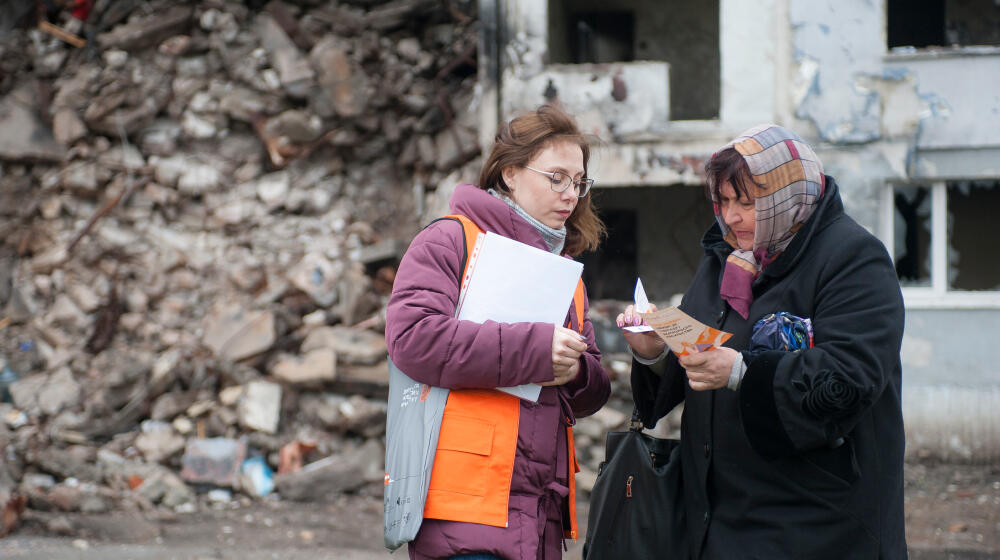"Even during the most severe winter frosts, our assistance to patients does not stop; we have to reach out because often these are the only available consultations for them," says the doctor of the UNFPA mobile gynecological team, Vitaly Kucher.
Vitaly and his colleagues from the Center for Emergency Medical Aid and Disaster Medicine in the city of Kharkiv spent the first week of 2024 in the Pechenig community in the Kharkiv region. This area is known as the "road of life" for many people from the Kharkiv and Luhansk region, who used this dam as the only possible pedestrian passage and fled the occupated areas to the territory under the control of the Ukrainian government in the spring-summer of 2022.
These communities are still recovering from the war-ravaged events of 2022, and the ruins of people’s houses are a stark reminder of those times. Despite everything, life goes on, but the community's women need access to quality medical care. In the Pechenig community, a mobile team of doctors of the Center for Emergency Medical Assistance and Disaster Medicine of the city of Kharkiv provide gynecologist services and a pediatrician performs diagnostics.
The need for mobile gynecological teams is exceptionally high. Women who live in villages or close to the front line do not see doctors, or have limited access to medical services. In total, 28 mobile gynecological teams covered 655,498 kilometers and assisted more than 140,000 residents.
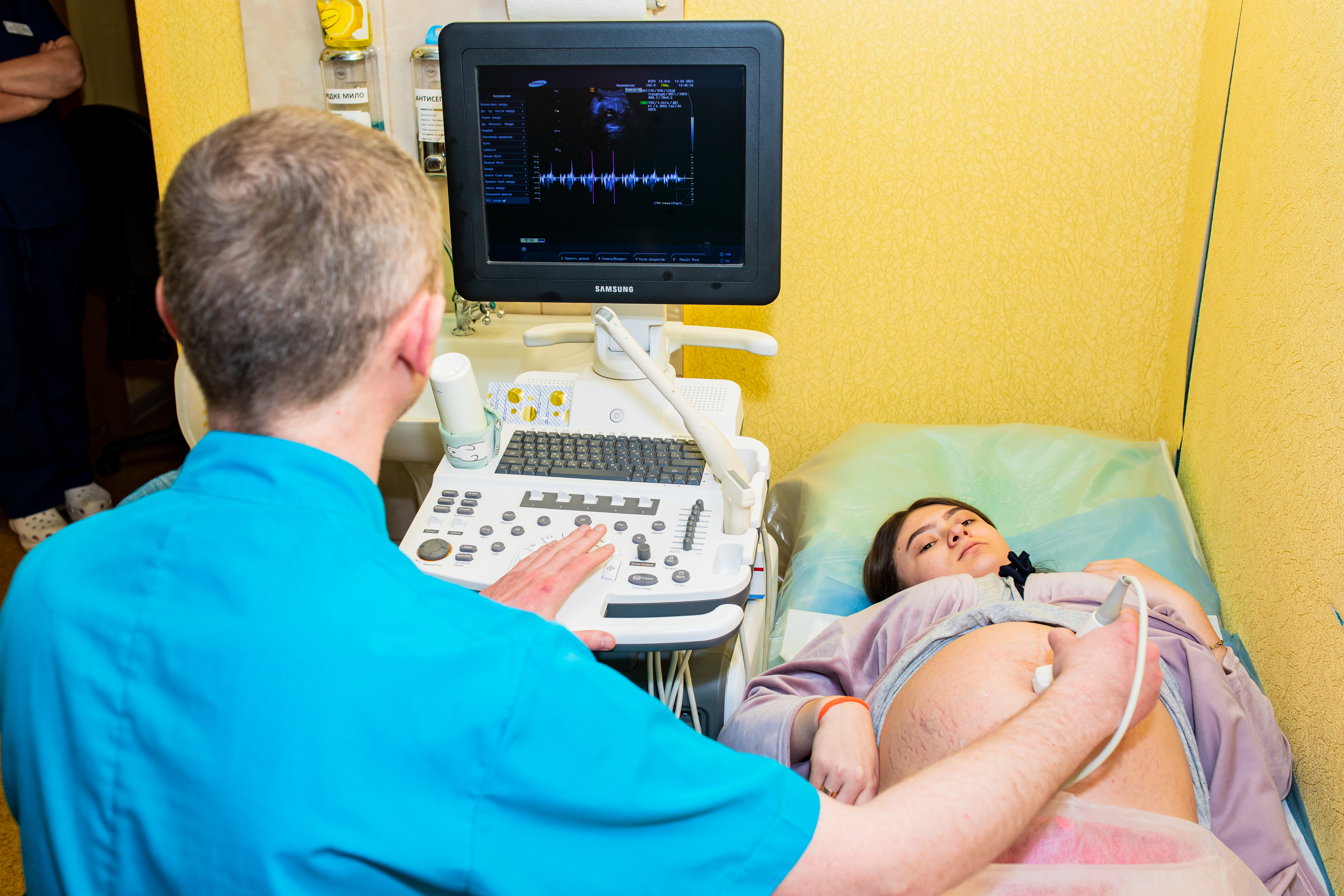
"Ukrainian women have the right to access quality medical care, regardless of the region. That's why our specialized gynecological medical teams provide constant access to preventive examinations, consultations, and treatment for women of all social and age categories," concludes Vitaly.
Neither air alarms nor winter stands in the way of our medical experts in providing sexual and reproductive health services to those who need them. Even in the harshest weather conditions, mobile gynecological teams and Inclusive Barrier-Free Gynaecological Surgery Rooms of UNFPA, the United Nations Population Fund in Ukraine, continue their vital work in 23 regions.
Domestic violence continues amid shelling
Angelina (name changed) was brought to the shelter by the police at night. She was in house slippers at a temperature of -10, with two children and a dog. She ran away from a man who beat and abused her. Four times, the woman left her husband and returned to him, and only the fifth time, with the help of specialists, she was able to break this circle of violence. Now Angelina has a shelter, and thanks to the efforts of many specialists, she can continue to live, work, and raise children.
Unfortunately, her story is not an isolated one because gender-based violence continues in all circumstances.
Under UNFPA’s social media campaign "Break the circle" dozens of people share their experiences of the violence they have experienced. About 100,000 users have used rozirvykolo.org to find helpful information and help contacts. According to research conducted in the fall of 2023, 66.7% of respondents have personally been subjected to domestic physical violence, or are aware of such cases in their environment. At the same time, three-quarters of the surveyed citizens are convinced that it is time to seek help in cases of domestic violence.
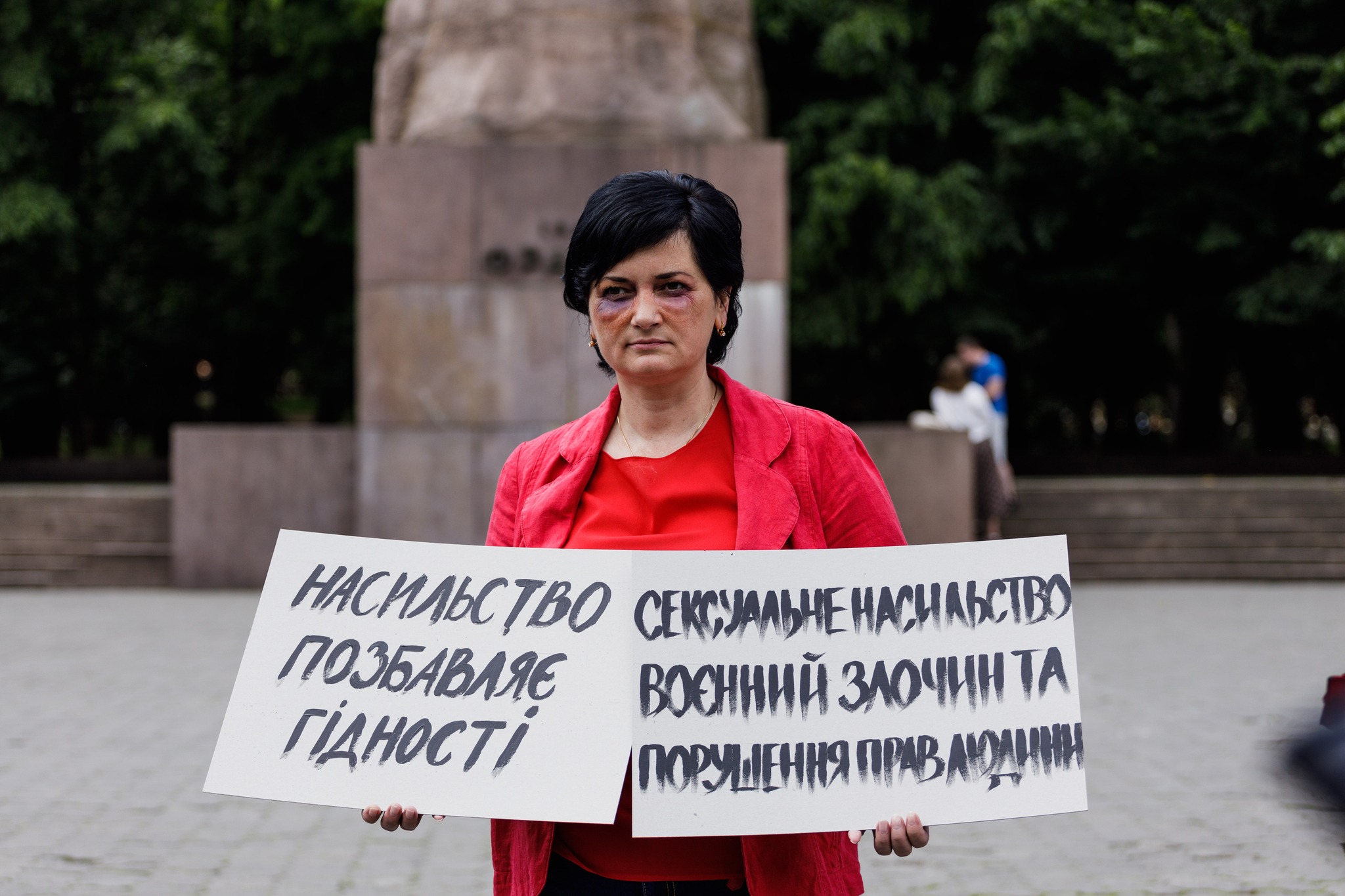
To help Ukrainian cities build a comprehensive system of combating gender-based violence, including domestic violence, UNFPA, together with partners, is implementing the project "Cities and Communities Free from Domestic Violence." It operates in 45 cities across Ukraine.
Day centers operate within the project, where women can get free psychosocial and legal assistance. Women also have the possibility of staying in a "crisis room" and shelters, where they can receive services that help them to feel themselves in a safe place and receive qualified support to overcome the consequences of violence. Survivors can seek protection at the shelter for a few days or up to 3 months – depending on their needs.
Since the beginning of the escalation of Russia's war against Ukraine, UNFPA has managed to open or support the operation of 38 daily social and psychological assistance centers, 27 crisis rooms, 20 shelters, and help more than 50,000 survivors.
Also, 109 Psychosocial support mobile teams operate in 22 regions of Ukraine, which help violence survivors by going to these places. Mobile teams support survivors despite the risks of shelling and the challenges of war and assist even in cities close to the front line.
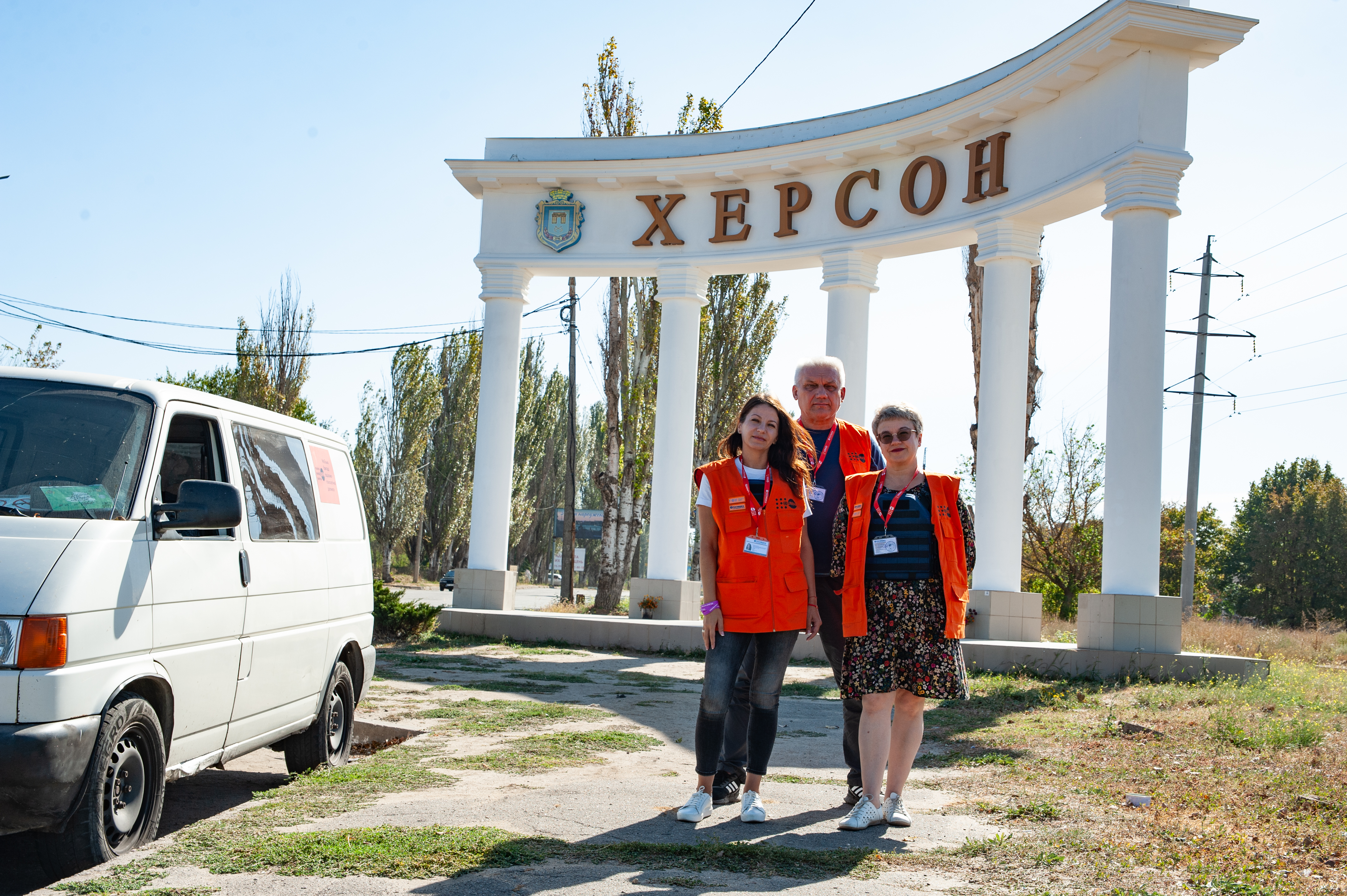
The war increased the number of clients of the "VONA Hub" project, which aimed at developing the professional potential and financial capacity of women who have suffered from gender-based violence, including domestic violence. The service works not only with those who have suffered from violence, but also with those who are at risk. And their number has now significantly increased because many women have lost their jobs and livelihoods, making them vulnerable to violence. The quick response has also become important: now there is no time for long studies; you must get a job and study simultaneously. During this period, the hubs provided complex support for 6,000 vulnerable women.
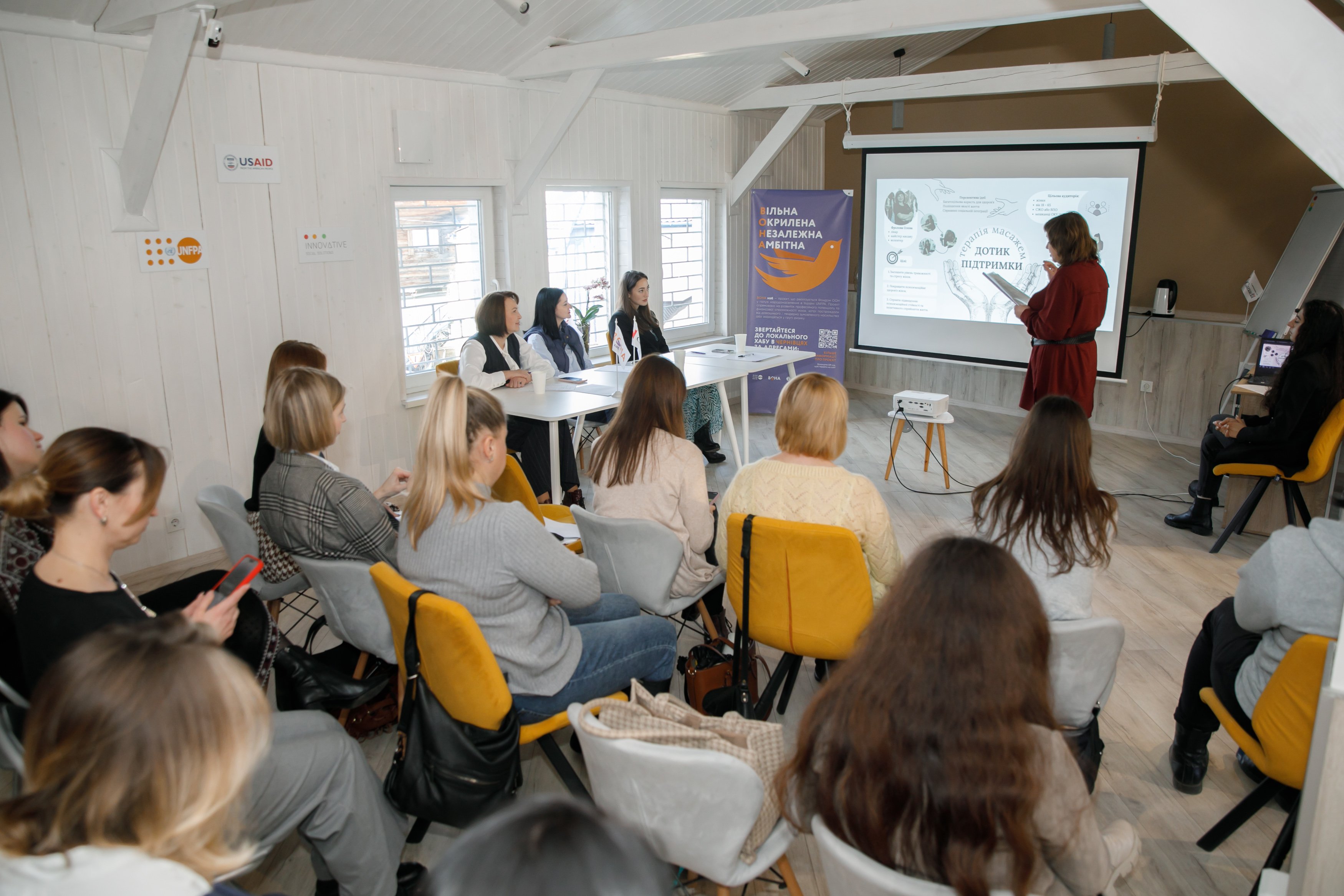
Responding to the challenges of war
Because of the war, millions of Ukrainian men and women suffer daily from shelling, destruction, and unprecedented levels of violence. To promptly respond to the challenges of the war, with the support of UNFPA, a unique social service was launched – Survivor Relief Centres.
These are services that provide free psychosocial, legal, and informational support to all those affected by the war, particularly to the survivors of conflict-related sexual violence (CRSV), as the war has led to a significant increase in CRSV cases. Additionally, in the Centres, people who lost their homes and/or survived occupation, captivity, deportation could find help at any time. Conflict-related sexual violence can have a significant negative impact on the physical and psychological health of survivors, so timely psychological help is critical.
"The psychologist helped me cope with the anxiety that was constantly haunting me. After many sessions with a psychologist, I regained a sense of control over my own life and the fact that I am in no way responsible for the violence," says Tetiana, who survived sexual violence during the occupation of her hometown and received help at the Survivor Relief Centres.
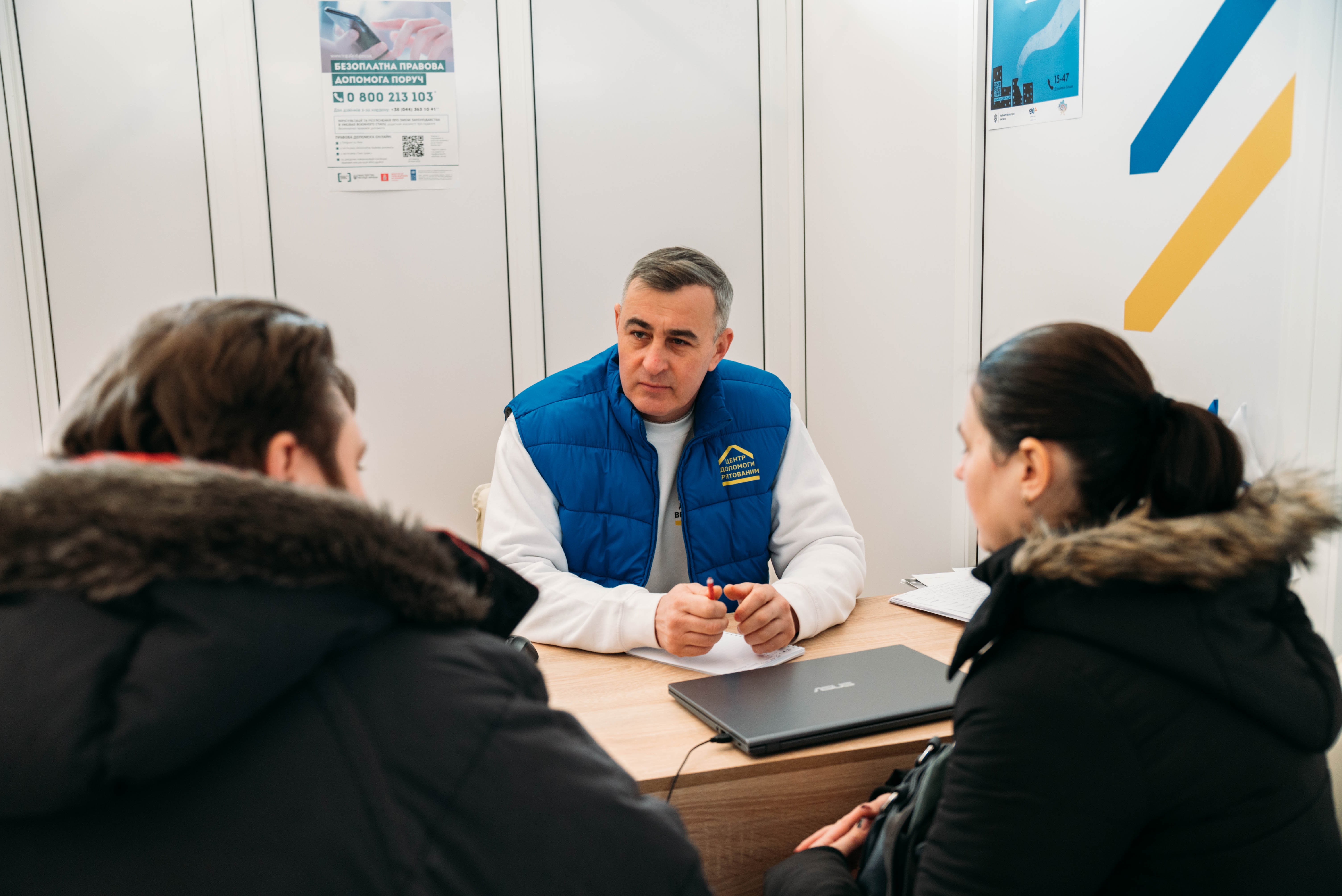
It is also possible to receive comprehensive psychotherapeutic help online for individuals who have experienced war-related violence, including sexual violence, through the 'Aurora' platform. Anyone, regardless of age, gender, or location, can use the services of platform specialists.
Psychological echoes of war
The consequences of war can be catastrophic for all people, and young people bear them especially hard. According to the results of a national study "The impact of the war on youth in Ukraine"*, 82% of young people felt losses. Mental health is one of the main challenges facing youth.
UNFPA works to ensure that every young person's potential can be realized, providing them with the appropriate skills and tools. Mental health support is a cornerstone of youth self-fulfillment.
During 2023, UNFPA and partners continued to publish the youth podcast "Mentalochka", highlighting essential aspects of young people's mental health and ways to strengthen internal resources and personality development in war conditions and difficult circumstances. The three seasons of the mental health podcast have garnered nearly 70,000 listens. In addition to being recognized by young people, the podcast became the best practice of youth work in Ukraine in the "Mental Health" nomination at the seventh All-Ukrainian Forum of Youth Workers from the Ministry of Youth and Sports of Ukraine.
Another format of work that helps young people overcome the psychological consequences of war is the "Energy of your future" youth camps. It is a programme that aims to create the safest possible environment to support teenagers in overcoming traumatic events related to war, as well as to prevent long-term psychological consequences.
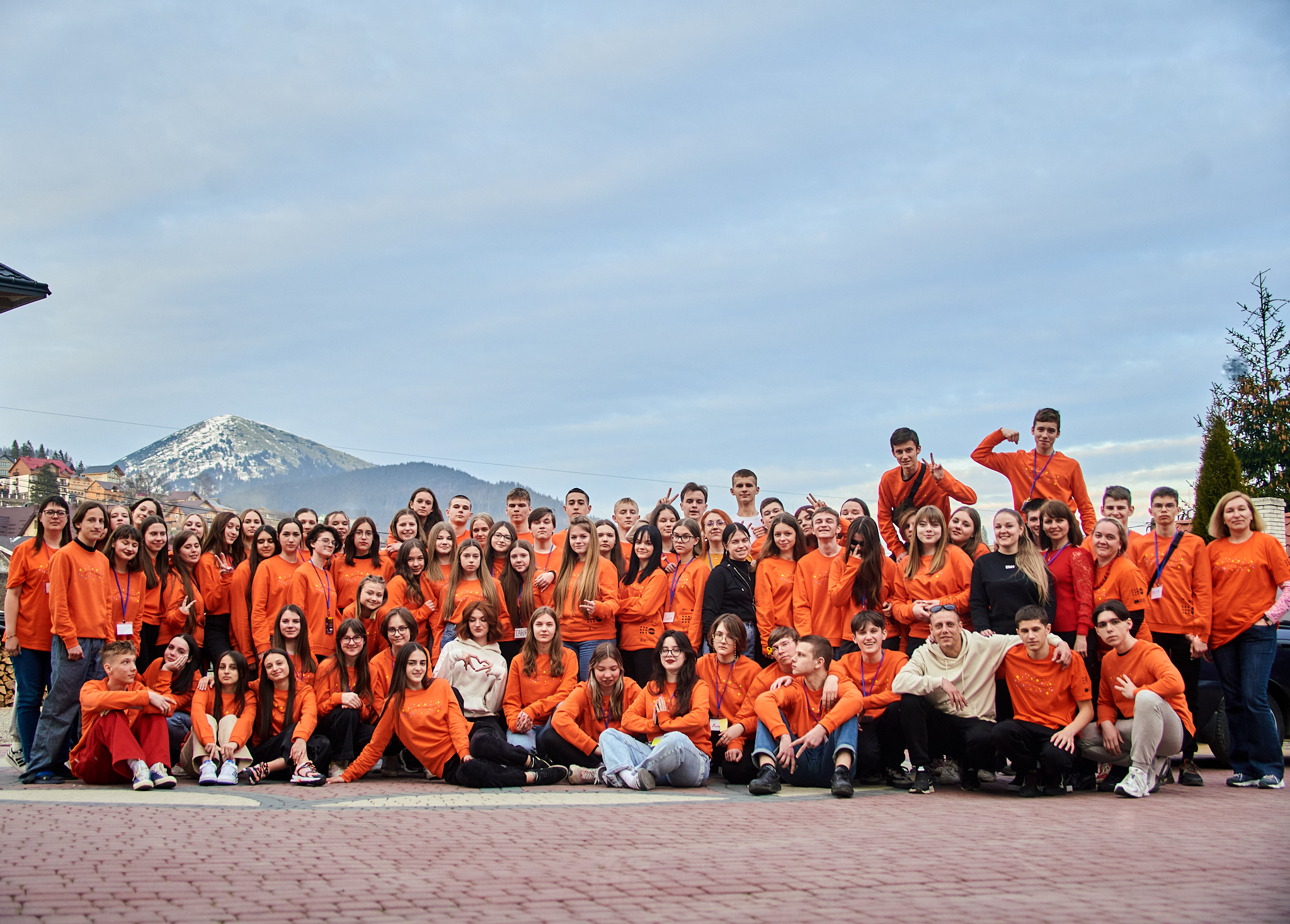
At the beginning of 2023, 150 Ukrainian teenagers from 18 regions of Ukraine, including internally displaced youth, took part in camp shifts and received new skills and support. After that, three communities, namely Kamianske, Nizhyn, and Kremenchuk, have successfully implemented the programme as part of the EU4Recovery project. A network of 47 trainers can now teach essential life skills to teenagers aged 14-17. A community of trainers was vital in organizing six local camps, engaging 126 youth participants, and providing them with essential life skills. In general, psychological sessions and other thematic activities for youth, families, and the most vulnerable segments of the population are some of the essential elements of the work on building resilient communities within the framework of the EU4Recovery initiative.
Youth are actively engaging in the recovery efforts through the "Bank of Ideas 3.0: MOLO, Dream!" project, designed to empower young individuals with the skills necessary to spearhead youth-led initiatives addressing various challenges at the municipal level. This initiative focuses on harnessing the potential of young people and youth organizations in initiating early recovery efforts. As a significant outcome of the project, 13 youth teams hailing from six regions across Ukraine have been provided with seed-funding support to kickstart their own community recovery projects.
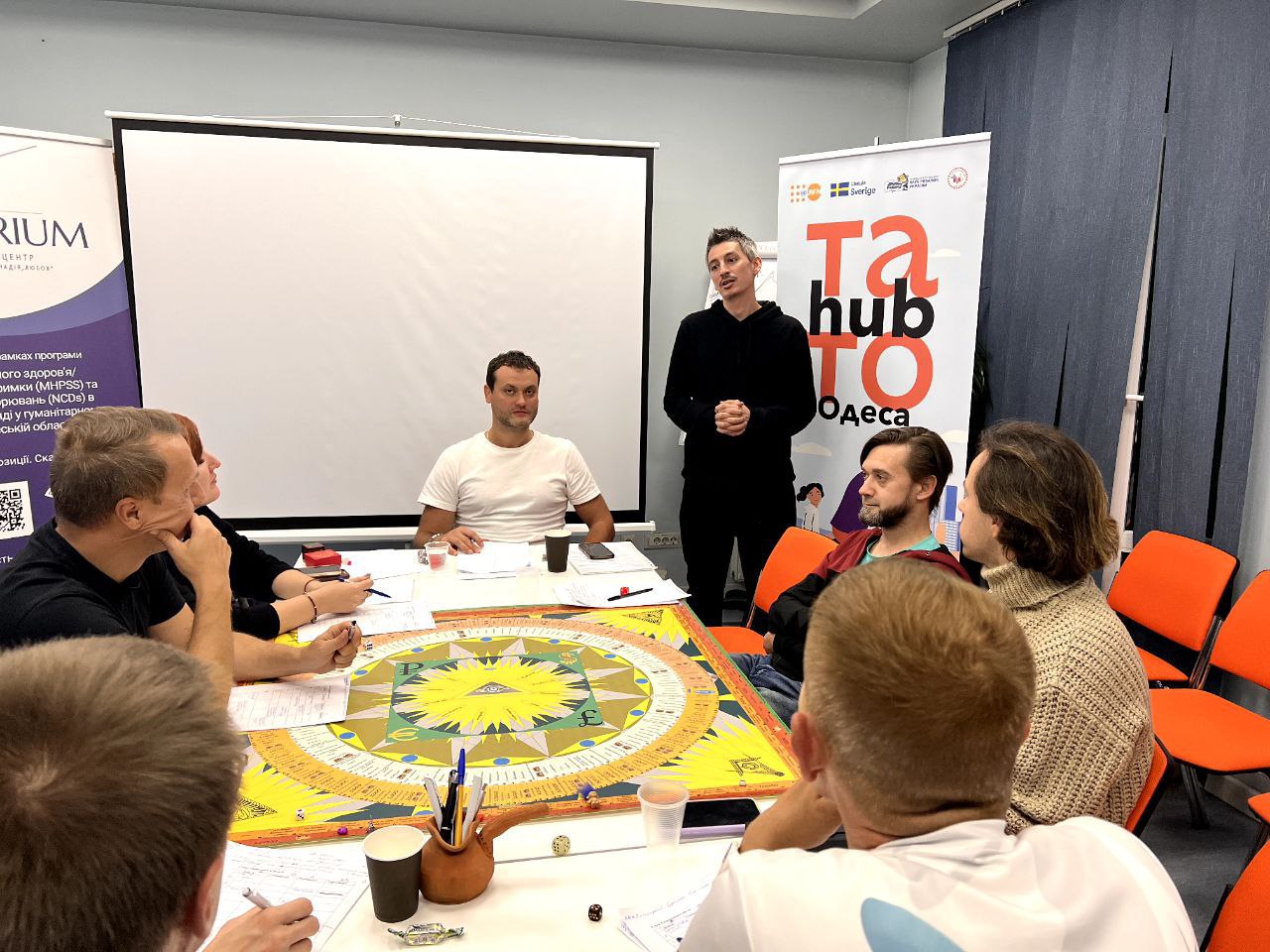
TatoHub - the all-Ukrainian network of spaces for men adapted to the war-related challenges. Thus, the network of 12 TatoHubs expanded its capabilities to build sustainable communities and families, continuing to promote responsible fatherhood, focusing on mental well-being and preventing sexually transmitted infections.
According to preliminary estimates, more than 14.6 million Ukrainians will need humanitarian aid in 2024. The realities of war continue to leave visible and invisible traces: lost lives, destruction of homes, obstruction of access to critical services and daily negative impact on the mental, and physical health of the population. By staying in Ukraine and helping communities even in the most remote corners, we provide rays of hope and support.
* The study "The Impact of War on Youth in Ukraine" was conducted by the NGO "Analytical Center Cedos" and the research agency Info Sapiens on the initiative of, as well as with the technical and organizational support of UNFPA, the United Nations Population Fund in Ukraine, UNDP Ukraine / UNDP in Ukraine and the Ministry of Youth and Sports of Ukraine, with the financial support of the Ministry of Foreign Affairs of Denmark.

